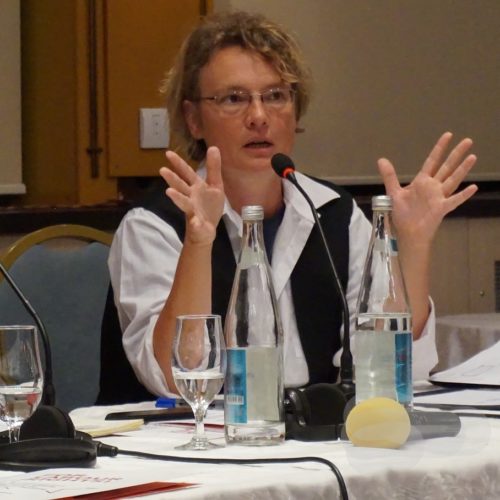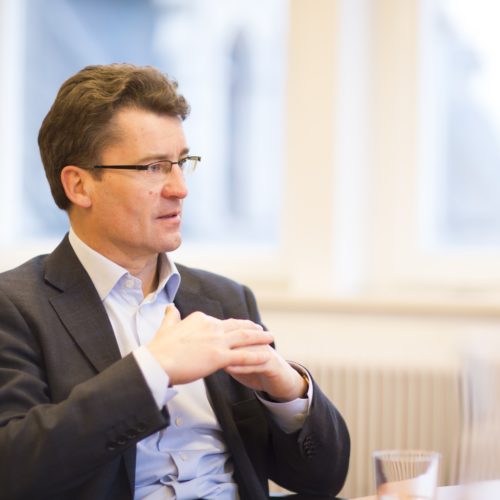The COVID-19 pandemic and
contemporary capitalism
Over the last five decades we have been witnessing a far-reaching transformation of capitalism. The significance of the developments, in particular after the financial and economic crisis in 2008, is contested. On the one hand, the crisis did not interrupt the marketfundamentalist „movement“ but went along with the political consolidation of the market driven economy. On the other hand, many social protest movements emerged, both progressive and regressive, some of them „countermovements“ in a Polanyian sense seeking for social protection against the market driven dynamics, the „fictitious commodification“ of nature, labor and money, others fighting for the politicization of social conflicts that had been handed over to technocrats in the past decades.
In terms of health threat on the global level, the pandemic puts the survival of wide parts of the population at risk. And – as the reports from different countries, not at least those about the so called ‚hot spots‘ show – social inequalities of class, race and gender matter as regards access to medical treatment, living conditions which allow a minimum of protection or not, the division of labor and the responsibilities for dealing with the effects of the pandemic. In terms of ecology, economy, politics, the social and the cultural life, the pandemic – compared with the financial crisis and the subsequent disastrous austerity schemes – seems to be or to become a caesura, perhaps with even more significant consequences.
The caesura concerns the already destabilized relation between capitalism and democracy as far as politics, policies and measures (border closures, social distancing, forbidding of political gatherings etc.) can be misused to prevent the free movement of people or the formation of the political will. It also concerns the relations economy/ society and economy/ecology and politics which stabilize the dominant capitalist idea of “growth” instead of a shift to social and ecological sustainability. And it seems equally contested in terms of a „double movement“, as in the previous decade.
Karl Polanyi’s work may serve as a starting point to discuss the causes and effects of the pandemic and raise questions regarding the transformation of society on the basis of his „double movement“ thesis, his analysis of the dynamics of the „market economy“ and „market society“, the „fictitious commodification“ of land, labor and money and its limits, the relation between „industrialization and democracy“ or his vision of „freedom in a complex society“. The debate invites scholars from around the globe to contribute to a better understanding of the COVID-19 pandemic and its ecological, economic, political, social and cultural effects from a Polanyian perspective.






